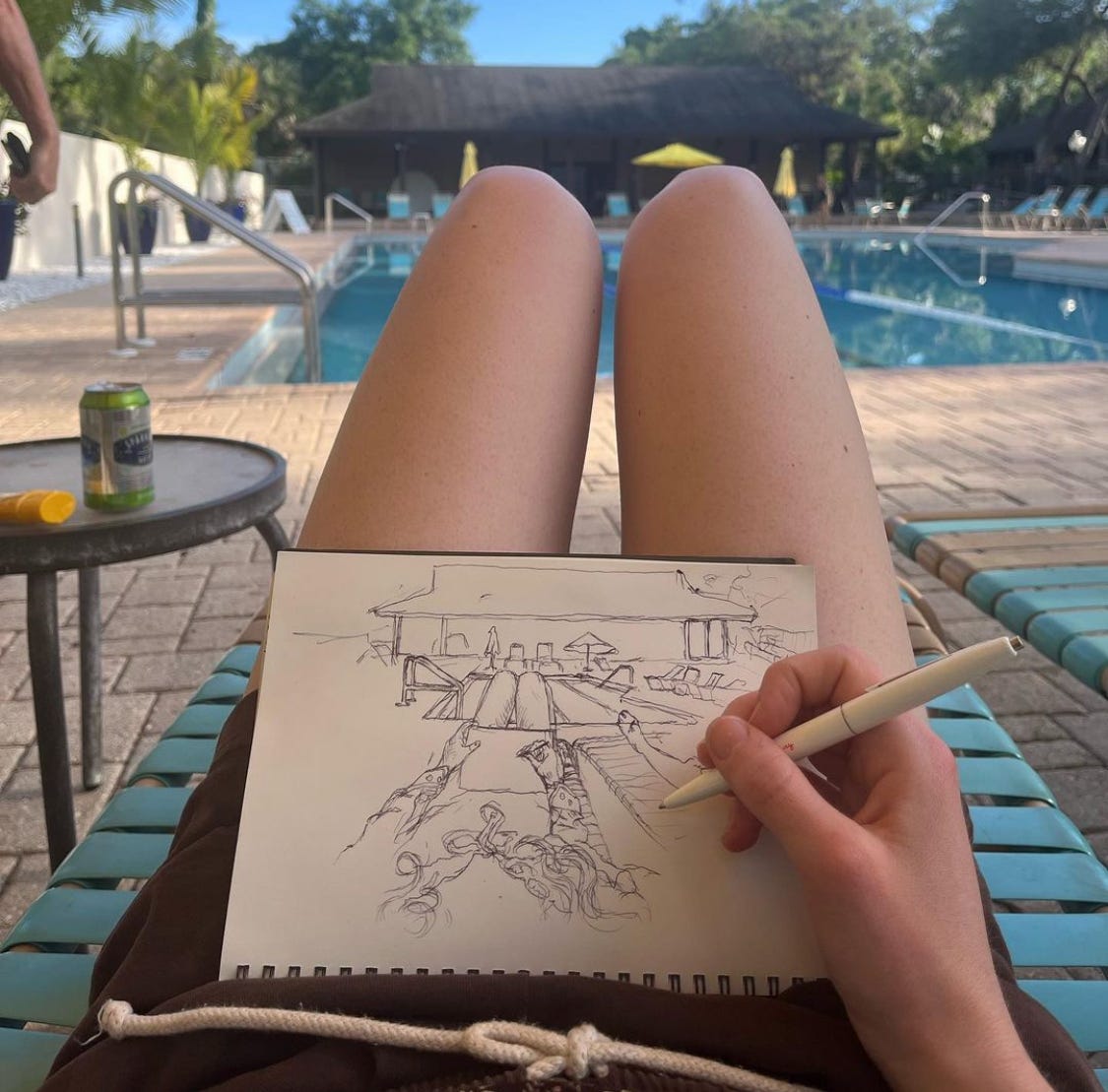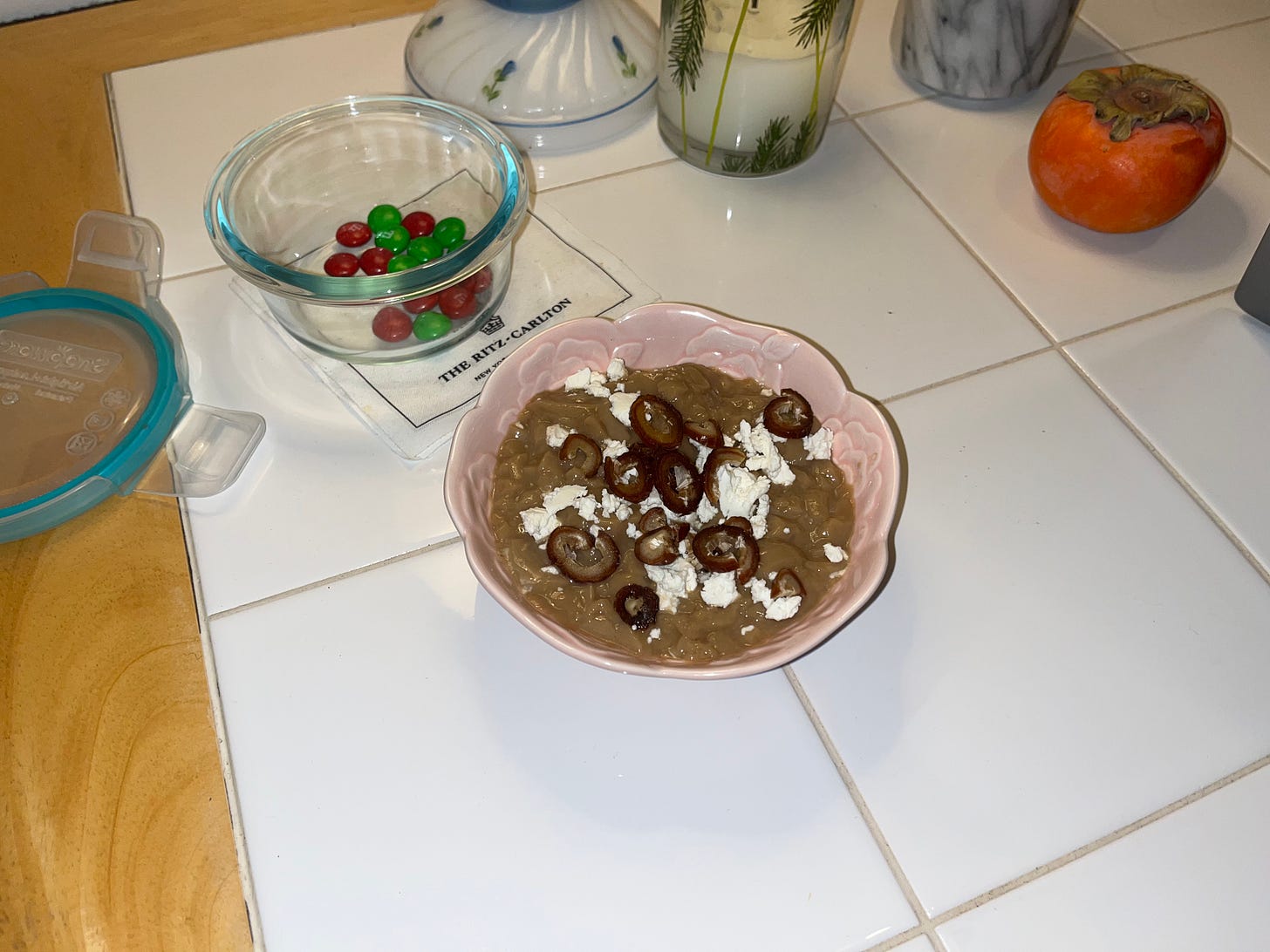Libby (@woman_test_kitchen) is a graphic designer and amateur gelatin chef. You can read the original version of this feature here.
#15: Libby Marrs
Cancer/Leo/Cancer
Chinatown, Manhattan
What does health, or being healthy, mean to you?
A process of striving for an abstract ideal, with the understanding that *it* is not necessarily an end to achieve. Like happiness. To me, this process has a lot to do with overcoming neurosis and cultivating a seamless mind-body axis. Ideally, you develop more of an intuitive understanding of your body’s signals over time, and are equipped with the knowledge and means to respond, treat, or properly nourish it. Even when the gap between what you have versus what you need grows too large to manage without, say, institutional intervention, ‘health’ is about having a kind of autonomy distinct from control.
For example, I don’t really buy ‘wellness’ protocols that involve obsessive tracking and management based on quantities of symptoms to be solved or nutrients to be allocated. The more obsessive you are about something, like food, the more it sucks up your energy and runs your life. An “intuitive eater” (an approach that has hardened into its own genre of diet culture, but that’s another story) isn’t obsessed with food, thus finds it easier to nourish themselves without having to measure everything. The self-trust, respect, love, etc. involved in honing this intuition also probably help prepare you to decay and die, which is an important part of wellness, too.
How would you describe your current lifestyle? How do you start and end your days?
I work remotely, so I’m prone to sitting in my apartment all day staring at my computer, which makes me feel evil and not like a human. Using my body to walk around and my eyes to look at things makes me feel human. Knowing this, I try to get outside first thing and get some sun on my skin. On a really good day, I’ll go to yoga or my favorite low-intensity strengthening and mobility-focused barre workout class. Even on bad days, I start the morning with a good homemade breakfast, which is typically some sort of porridge / bowl of slop. My end-of-day routine is more dubious, but often revolves around friends. I love to go to the restaurant where my best friend works and have a nightcap while they close. Sometimes I even help stack chairs or roll up silverware. Then, we walk to my place and watch an episode of Gossip Girl. I go to bed happy and loved.
Do you believe in the concept of self-healing, or that one can heal oneself?
Of course! I think holding that belief is critical in the sense that it means you’re claiming some level of responsibility over your own health. It’s problematic that the idea is pretty absent from conventional medicine, not only self-healing but also just ‘self’ (we could get psychoanalytical and talk about how treatment targets either the body or ego/persona but, really, what does it look like to attend to the ‘self,’ and how does it actively participate?) and ‘healing’ (which implies a deeper more holistic framework than just treating symptoms).
BUT, I think it’s also bad, or not in the service of health, to identify too much with the idea of self-healing. Sure, a lot of doctors glaze over the details that holistic or naturopathic practitioners incorporate into treatment protocols — they’re squeezed through oversaturated, underfunded bureaucratic systems and don’t have the capacity to hold their patients’ unique narratives in their heads. But, if you’re going to do a bunch of research anyway, you might as well hear out what someone who actually went to medical school has to say. We think that because we have the infinite encyclopedia of the internet at our disposal, anything a doctor says equates to information we can pull up on Google. But information is not knowledge, and having access to it doesn’t mean you don’t need help interpreting it. My point is that it’s ideally not just doubling-down on one or another type of care because you think it aligns with your morals. It’s about holding your own agency at the center of your journey while pulling in help from outside. Ideally you form relationships that, through conversation, not only lead to answers but produce compelling questions to ask in the first place. Self-healing makes the most sense to me employing a reverence and curiosity for the mysteries of one's own mind/body, from both normal and surprising perspectives.
Was there a specific moment in life that made you more conscious of your health?
I got curious about “online communities” a few years ago, which ended up impacting my life significantly in a variety of ways, one of the biggest being in how I approach my own physical wellness. In 2020/21, a lot of people like me started doing most of their socializing online for the first time. We found little pockets of subculture whose mores appealed to something latent in ourselves. We found that just being able to talk online about these values illuminated a real desire to embody them. Some people moved to NYC to party, others left to pursue sobriety, some even found God and started going to church, while I enacted diet protocols that I found on men’s health forums (and also moved to NYC to party). The new persona I had started to aspirationally identify with wasn’t a man, but a more chiseled, optimized version of myself, enlightened and liberated from the poisonous trappings of mainstream convenience. Whatever that means, the lifestyle changes I felt motivated to implement became unsustainable after awhile, and likely contributed to the issues I have today, oops. But now, thanks to my experience letting cultural identification drive my decisions on how to nourish myself, I have a better idea of how to discern practical information that helps me understand what my body needs, from propaganda curated to sell me things, or worse — indoctrinate me into an MLM scheme / CULT!?? Now, I mostly just enjoy the amazing spectrum of algorithmic diet culture content across social media for what it is: entertainment.






